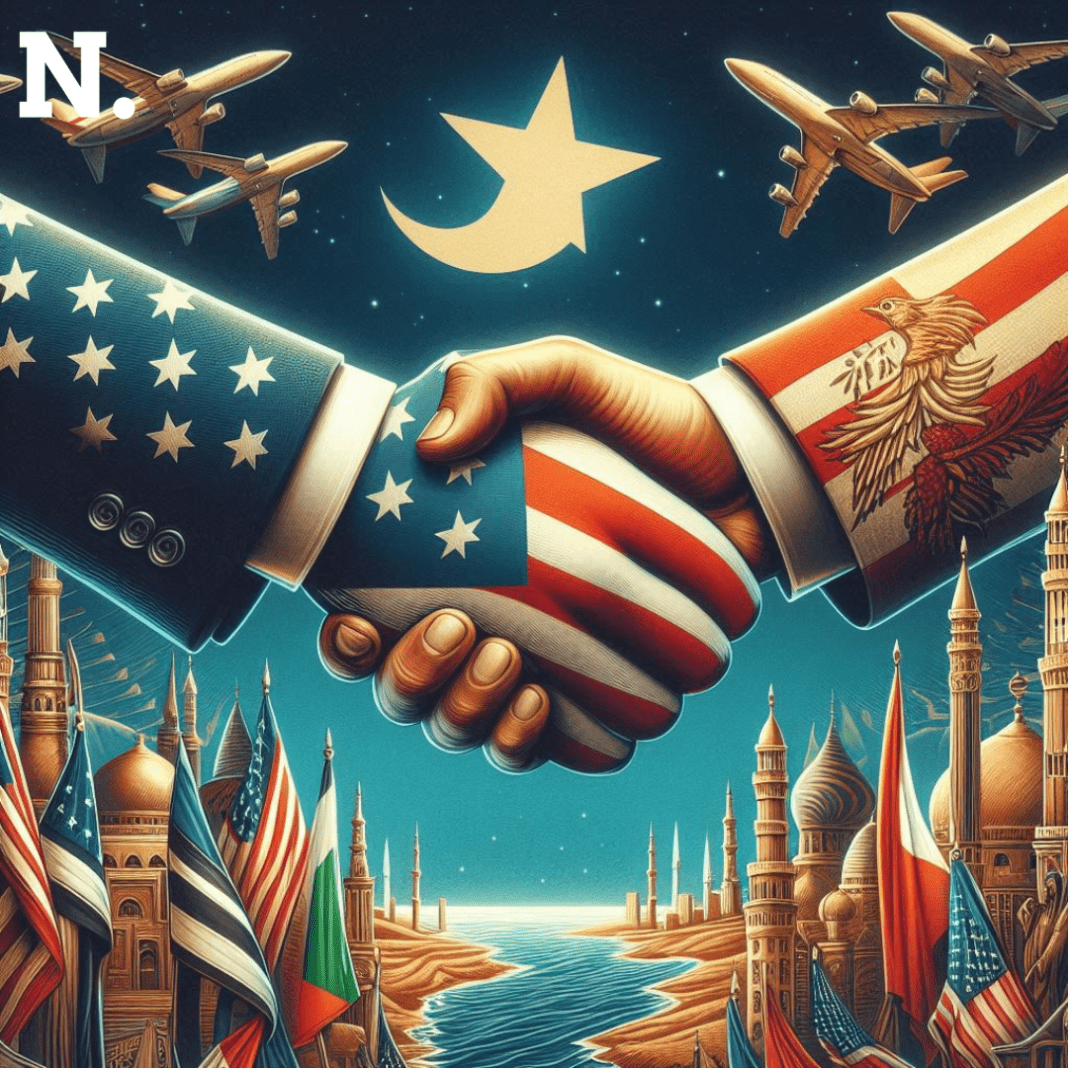In the backdrop of mounting tensions between Israel and Hezbollah, a critical meeting took place between the U.S. envoy and Israeli leaders. This pivotal gathering, occurring against a backdrop of heightened military posturing and provocative actions, emphasised the pressing need for diplomatic intervention. Discussions centred on strategies to de-escalate tensions sparked by Hezbollah’s aggressive stance and recent cross-border incidents. Both parties reiterated their commitment to diplomatic channels as crucial in averting a broader conflict, prioritising stability and regional security through collaborative international efforts.
U.S. Envoy’s Israel Visit: Regional Stability Talks
Tensions have risen following a spate of recent events: Hezbollah’s unrelenting military build-up along the Lebanese border, reported involvement in attacks against Israeli targets, and retaliatory Israeli strikes on Hezbollah positions in Lebanon. Additionally, the continuing strife in neighbouring Syria complicates matters further, with Hezbollah actively supporting President Bashar al-Assad’s regime.
Against this volatile backdrop, the visit of the U.S. envoy to Israel underscores Washington’s commitment to bolstering regional stability and preventing escalation. The discussions between the envoy and Israeli leaders likely focused on assessing the broad spectrum of threats, exploring diplomatic avenues for resolution, and reaffirming the enduring partnership between the two nations in addressing shared security challenges.
Given Hezbollah’s expanding influence and the complex regional dynamics involving Syria and Iran, the diplomatic engagement sought to navigate towards mitigating risks and fostering a climate conducive to peace. It highlighted the strategic imperative of international cooperation and dialogue in averting potential conflict and maintaining stability across the Middle East.
In essence, the envoy’s visit represented a critical diplomatic effort to address escalating tensions, promote dialogue, and uphold mutual security interests amidst challenging regional circumstances.
U.S.-Led Diplomatic Push: Countering Hezbollah Threat
The recent meeting aimed to strategize on containing Hezbollah’s destabilising actions without resorting to direct military conflict, which could have widespread consequences. Led by the U.S. and its regional allies, the goal is to maintain the delicate regional balance and prevent a broader war scenario. Amid escalating tensions in the Middle East, the timing underscores international concerns and the urgent need for diplomatic initiatives to prevent further escalation and facilitate productive dialogue.
The discussions also likely addressed broader regional dynamics, including Iran’s influence and ongoing efforts to revive the Iran nuclear deal. Hezbollah’s role as a key Iranian proxy adds complexity, as any conflict involving Hezbollah could extend beyond Lebanon and Israel, impacting the wider Middle East region. Thus, the meeting sought to navigate these complex issues to mitigate risks and foster stability through diplomatic channels.
U.S. Diplomacy: Regional Stability
The recent meeting between the U.S. envoy and Israeli leaders carried significant weight in the context of escalating tensions between Israel and Hezbollah, highlighting a critical juncture where diplomacy plays a pivotal role in averting potential conflict. It underscored the United States’ steadfast commitment to ensuring the security and sovereignty of Israel while navigating towards a peaceful resolution amid complex regional dynamics.
In reaffirming its friendship with both Israel and Lebanon, the United States positioned itself as a key mediator dedicated to achieving stability without resorting to war in the Middle East. This diplomatic initiative symbolised a clear dedication to engaging in constructive dialogue and emphasised the indispensable role of international cooperation in addressing intricate security challenges.
While the specific outcomes of the discussions remain uncertain, the meeting sent a robust diplomatic signal aimed at reducing the prominence of military solutions in resolving regional crises. Moving forward, the focus will be on translating diplomatic rhetoric into tangible actions that can de-escalate current tensions and foster an environment conducive to constructive dialogue and conflict resolution.
Geopolitical Complexities
Achieving lasting stability in the region will require sustained efforts and difficult compromises, navigating a landscape where interests often diverge sharply. It necessitates navigating the complex interplay of geopolitical interests and regional alliances, while also addressing the broader implications of Hezbollah’s actions and Iran’s influence in the region.
Ultimately, the meeting highlighted the urgency of finding peaceful resolutions to prevent further escalation and foster stability. It reinforced the importance of diplomatic engagement as a cornerstone of U.S. foreign policy in the Middle East, signalling a commitment to navigating challenges through dialogue and collaboration with regional partners and stakeholders.
Conclusion : Diplomatic Imperatives
The visit of the U.S. special envoy to meet with top Israeli leaders comes at a pivotal moment marked by escalating tensions between Israel and Hezbollah. As prospects for immediate de-escalation remain uncertain, the emphasis shifts to diplomatic engagement and international cooperation as potential pathways to steer away from the brink of catastrophic conflict. These channels offer a glimmer of hope for charting a course towards regional stability, where collaborative efforts could mitigate risks, foster dialogue, and establish conditions conducive to a safer and more secure future for all stakeholders in the region.





